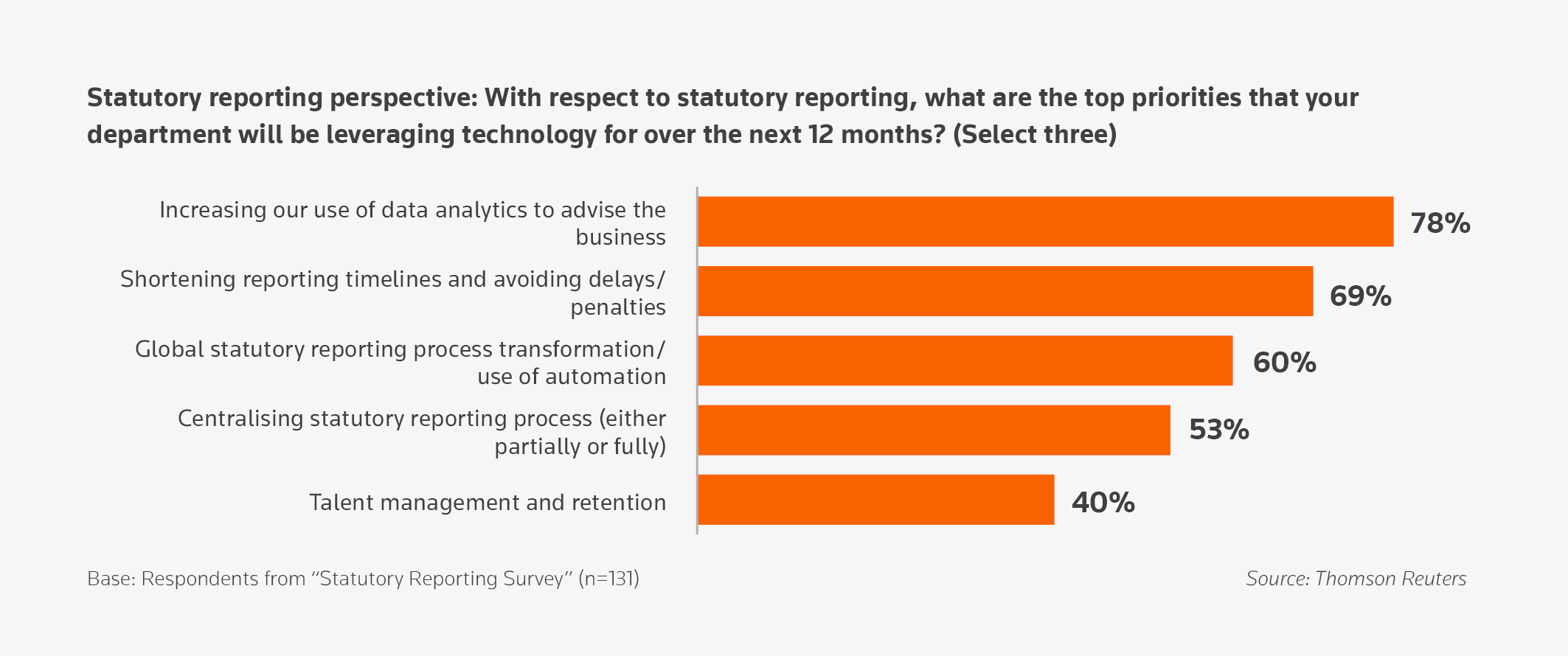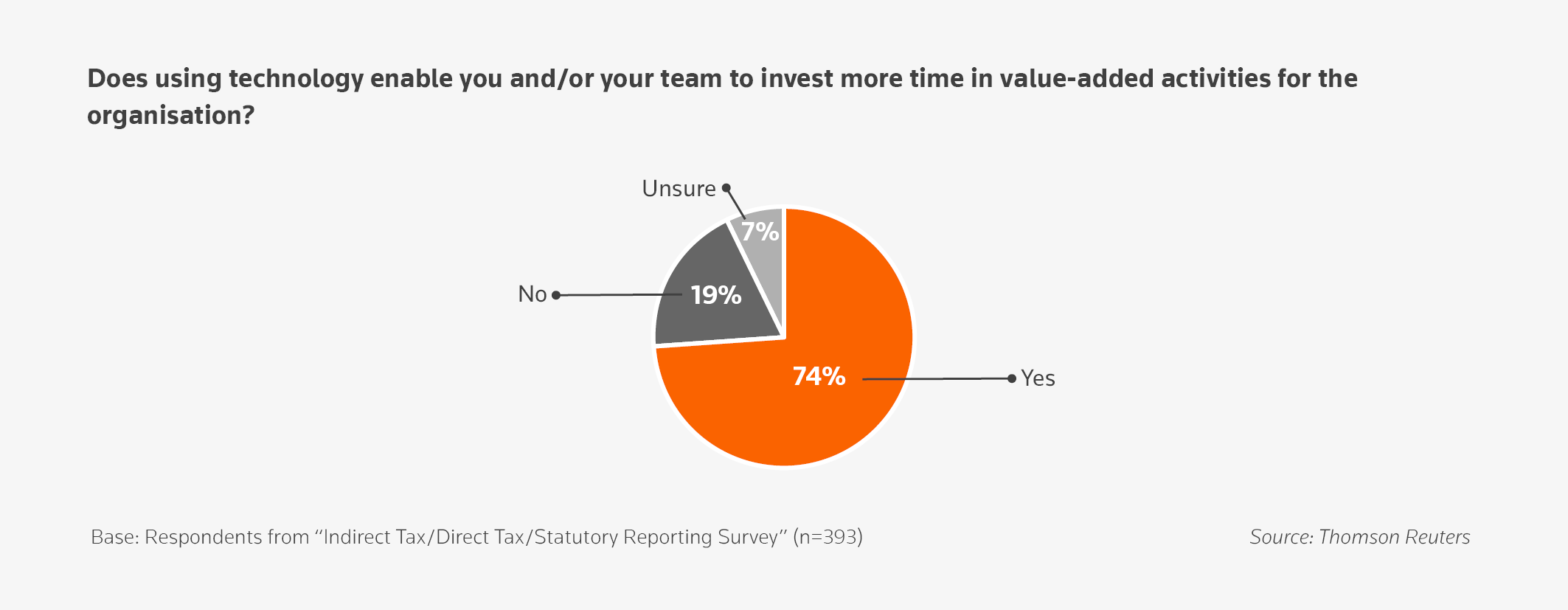In today’s evolving financial landscape, statutory reporting professionals are leveraging data to advise their businesses. But they want much more of it and are pursuing data as a priority.
The Digital Transformation in Tax Compliance and Statutory Reporting 2023 Survey Report underscores trends in financial reporting.
It reveals technology patterns across industries. And according to the survey there is one priority gaining precedence in statutory reporting. It is data analytics.
Strategic use of data analytics generates insight and efficiency. However, the key to unlocking data lies in an optimised technology stack. The survey offers a growing solution. All arrows point to software that aligns with business goals.
The report captures data from 650 professionals in Australia, India, Japan, the Middle East and North Africa, and Southeast Asia. In this article, we share the perspectives of finance professionals.
Power of data to advise the business
Data analytics are powerful for business. Finance professionals now have the means to leverage vast datasets to identify trends, areas to focus on and anticipate risks. This means breaking free from traditional limitations and time-consuming statutory reporting.
According to the survey, a majority of statutory reporting professionals (78%) want to use data analytics more to advise the business. Finance teams are essential to the future of their organisations. Armed with data-driven insight, an organisation can make better decisions to drive growth.
Other priorities include shortening reporting timelines to avoid penalties for delays.
Many professionals value the power of data. However, they face two key challenges to harnessing technology for statutory reporting, according to the survey.
Controlling cost and reporting efficiently
Nearly three in five professionals (58%) experience issues with cost controls and effective use of software.
Addressing these challenges, however, requires a deep understanding of data and its implications. Only by harnessing data analytics can finance professionals control cost. With sophisticated data insights, you are able to identify gaps and optimise reporting.
Moreover, data allows finance teams to identify opportunities, mitigate risks, and align strategies with business objectives. Manual tasks consume time. Finance teams undertaking manual processes spend less on tasks that offer the best value.
Finance professionals must advocate for a tech stack that truly serves the business. The reality is that having technology in place does not guarantee compliance.
The numbers prove the point. Most statutory reporting professionals surveyed (70%) said their processes lack insight into the accuracy of underlying data. Instead, the key lies in aligning the technology strategy with specific business objectives.
Unlock value with purpose-built software
Noting the above: to unlock value, specialised software is essential. Finance professionals across businesses are automating repetitive tasks, freeing up time for value-adding activities. Most tax compliance and finance professionals surveyed (74%) said technology gave them and/or their team more time.
Automation increases capacity to engage in value-adding activities, instead of focusing on compliance. Manual tasks can become outdated with the right software implemented.
In addition, sophisticated technology also means that businesses can comply with increasingly digital tax authorities and meet statutory reporting demands. With automated solutions, finance professionals can deliver interactive statutory reporting without increased time expenditure.
Technologies can vary from one to another. The report indicates a growing use of purpose-built and content-driven financial and taxation software. These targeted solutions are streamlining processes, reducing manual efforts, and increasing accuracy in financial reporting.
Over three in five statutory reporting professionals (63%) surveyed have already embraced specialised technology to manage statutory financial reporting. This shift reflects the finance sector’s acknowledgment of the unique challenges posed by financial reporting. Additionally, there is a need for tailored software to address them effectively.
Build trust with an optimised tech stack
Advances in technology are allowing financial professionals to add value like never before. By embracing data analytics and purpose-built software, they are driving efficiency and unlocking the true value of their finance operations.
Data analytics and specialised software have become instrumental in tax and finance. They empower professionals to advise on and streamline financial reporting. But there is no one size fits all. The path to success lies in adopting technology that delivers on accuracy and serves the needs of your organisation.
Thomson Reuters’ Digital Transformation in Tax Compliance and Statutory Reporting 2023 Survey Report features the insights you need to evolve innovation. Download Part One: Macro Trends Driving Tech Adoption in Tax and Finance today.




